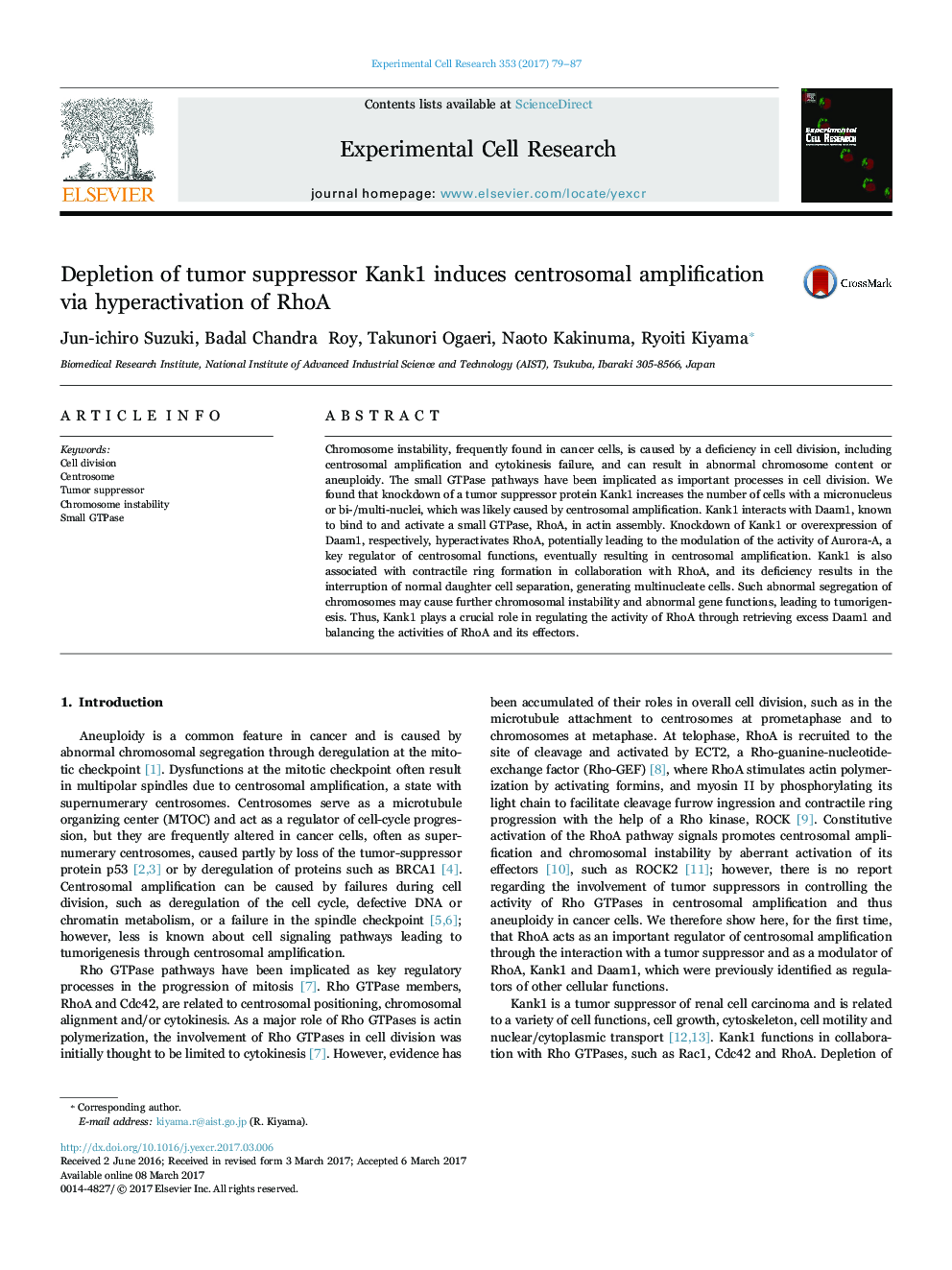| Article ID | Journal | Published Year | Pages | File Type |
|---|---|---|---|---|
| 5527104 | Experimental Cell Research | 2017 | 9 Pages |
â¢Tumor suppressor Kank1 is involved in cancer aneuploidy.â¢Involvement of RhoA, a member of small GTPases, in the functions of centrosomal maturation/segregation.â¢Daam1, a regulator of actin assembly in collaboration with Rho GTPases, is one of regulators for centrosomal functions.â¢The study shown here will give readers a new strategy for the study of tumor suppressor genes and a new potential target of drugs for cancer treatment.
Chromosome instability, frequently found in cancer cells, is caused by a deficiency in cell division, including centrosomal amplification and cytokinesis failure, and can result in abnormal chromosome content or aneuploidy. The small GTPase pathways have been implicated as important processes in cell division. We found that knockdown of a tumor suppressor protein Kank1 increases the number of cells with a micronucleus or bi-/multi-nuclei, which was likely caused by centrosomal amplification. Kank1 interacts with Daam1, known to bind to and activate a small GTPase, RhoA, in actin assembly. Knockdown of Kank1 or overexpression of Daam1, respectively, hyperactivates RhoA, potentially leading to the modulation of the activity of Aurora-A, a key regulator of centrosomal functions, eventually resulting in centrosomal amplification. Kank1 is also associated with contractile ring formation in collaboration with RhoA, and its deficiency results in the interruption of normal daughter cell separation, generating multinucleate cells. Such abnormal segregation of chromosomes may cause further chromosomal instability and abnormal gene functions, leading to tumorigenesis. Thus, Kank1 plays a crucial role in regulating the activity of RhoA through retrieving excess Daam1 and balancing the activities of RhoA and its effectors.
